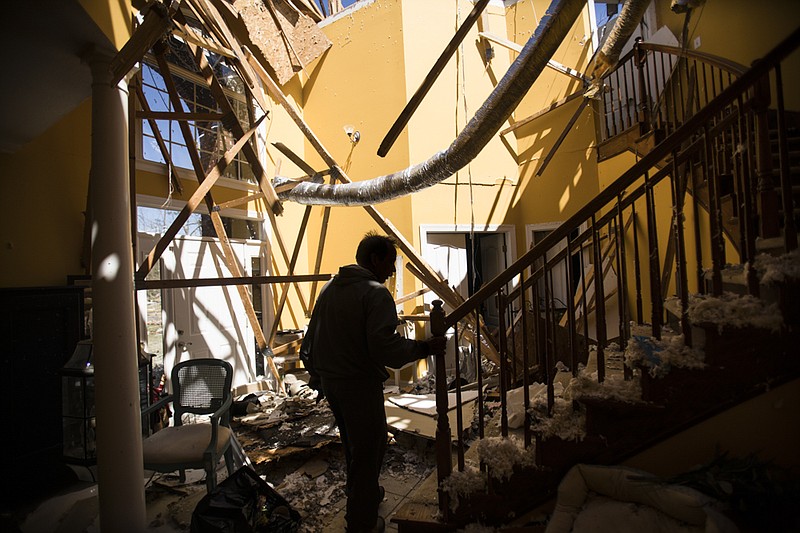Editor's note: This is an excerpt from a column that originally published Sunday, April 19.
Just as our newsroom is figuring out the strange new rhythm of telling the stories of our community facing coronavirus - a microscopic menace whose devastating effects have upended life as we know it - we took another body blow.
Mother Nature walloped Southeast Tennessee and North Georgia late on Easter Sunday with severe thunderstorms and ferocious tornadoes packing 145 mph winds Talk about kicking us when we're down.
No one else has the responsibility - the obligation - to record what happens in a community. We do. We choose it every day. We write down and photograph and record what we see, hear, feel and touch. Diligently. Objectively. With no goal but to inform our communities. These stories must be told; if reporters aren't there to bear witness, the voices and faces and human experiences of these tragedies are lost.
Sometimes it is a horrible obligation.
This story is deeply personal to many on our staff. They are covering it because they have an obligation to tell the stories of this storm, and they are simultaneously living through it. Their homes are damaged; they don't have power. Some of them and many of their family members are displaced. At the same time they are covering this tragedy, they are working carefully, observing social distancing recommendations. That kind of worry, those little seeds of personal stress, add to the inherent pressures of working on constant deadlines.
But every one of them lives to tell your stories. Relentlessly, but also with care and concern.
- Chris Vass, public editor, cvass@timesfreepress.com
